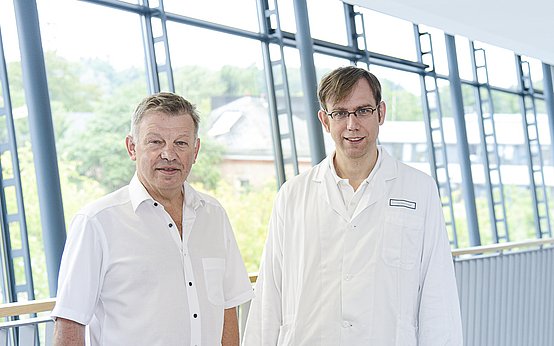The aim of the Laboratory for Retinal Physiology is to gain a better understanding of visual information processing in the retina and its influence on visual perception. We investigate the connection between visual information processing and electrophysiological signals (such as the electroretinogram) that can be measured non-invasively. We also explore how processing and electrophysical signals change in the event of retinal disease.
We hope that these findings will help us diagnose and monitor diseases better and enable us to assess the results of treatment.
We investigate how diseases of the retina affect visual perception. The retina is more than just a light sensor. The image that is projected on to the retina is already processed by the complex neural network of the cells in the retina. Some of these cells specialize in recognizing certain aspects of visual perception such as color, brightness or movement. Within the framework of our translational research, we use techniques from basic vision research and use these to assess the visual function of patients with chronic neurodegenerative diseases of the retina, for example inherited retinal diseases such as retinitis pigmentosa or diseases of the retinal ganglion cells such as glaucoma. These techniques involve measuring the temporal contrast sensitivity, color discrimination and luminance perception and we use the principle of spectral compensation (silent substitution) in order to selectively stimulate various types of retinal cells. Although our main objective is to gain a better understanding of perception mechanisms behind the changes in visual perception of these patients, our research also has essential implications for the development and application of diagnostic tools in clinical ophthalmology, not least in the observation of visual function in connection with novel treatment approaches for inherited retinal diseases.

Prof. Dr. Jan Kremers
Research Staff
Schwabachanlage 6
91054 Erlangen

PD Dr. Cord Huchzermeyer
Specialist
Schwabachanlage 6
91054 Erlangen

